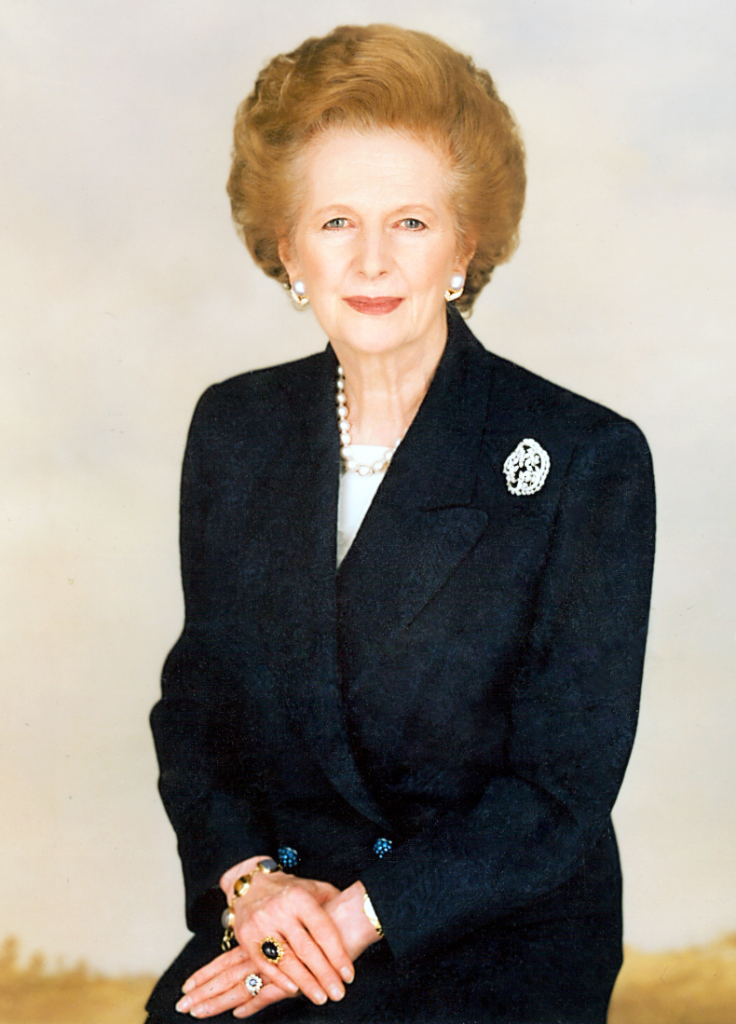Margaret Thatcher’s ascent to the position of Prime Minister of the United Kingdom shattered not only the political glass ceiling but also redefined the discourse around women’s roles in leadership. Thatcher’s tenure, beginning in 1979, marked a pivotal moment in history, as she became the first woman to lead a major Western democracy. Her legacy, however, extends beyond mere symbolism, influencing gender politics in ways that continue to resonate decades after her time in office.
Born on October 13, 1925, in Grantham, Lincolnshire, Margaret Hilda Roberts was the daughter of a grocer and local politician. Her upbringing in a middle-class family, deeply rooted in conservative values, instilled in her a strong work ethic and a belief in individual responsibility. Thatcher’s academic prowess earned her a scholarship to study chemistry at the University of Oxford, where she became involved in student politics. These formative years were critical, as they laid the foundation for her conservative ideology and passion for public service.

Thatcher’s early political career began in 1959 when she was elected as the Member of Parliament for Finchley. Over the next two decades, she navigated the male-dominated political arena, gradually rising through the ranks of the Conservative Party. Her breakthrough came in 1975 when she was elected leader of the party, an achievement that was seen as improbable at the time, given the entrenched gender biases within the political establishment.
Upon becoming Prime Minister in 1979, Thatcher faced the dual challenge of leading a nation in economic turmoil while also defying societal expectations of women in power. Her leadership style was often described as assertive and uncompromising, qualities that earned her the nickname “Iron Lady.” While some critics viewed her as embodying traditionally masculine traits, others argued that she redefined what it meant to be a female leader by refusing to conform to the stereotypes of her gender.

.
Thatcher’s policies and governance were marked by a fierce commitment to free-market principles, deregulation, and a reduction in the influence of trade unions. These policies, collectively known as “Thatcherism,” were highly controversial, leading to both admiration and animosity. Supporters lauded her for reviving the British economy and restoring the country’s global standing. Detractors, however, criticized her for exacerbating social inequalities and weakening the welfare state. Regardless of the polarized views, Thatcher’s impact on British politics was profound, and her tenure left an indelible mark on the nation.
In the context of gender politics, Thatcher’s legacy is complex and multifaceted. On one hand, she broke new ground by proving that a woman could not only hold but excel in the highest political office. Her success challenged the traditional patriarchal structure of British politics and inspired countless women to pursue careers in fields previously dominated by men. Thatcher’s rise to power was emblematic of the broader feminist movement that sought to expand opportunities for women across all sectors of society.

However, Thatcher’s relationship with feminism was ambivalent. She often distanced herself from the feminist label, asserting that she had achieved her position through merit rather than any movement’s support. Her stance on gender equality was, at times, contradictory; she appointed only a few women to senior positions in her government and did not prioritize policies specifically aimed at advancing women’s rights. For many feminists, this was a point of contention, as they had hoped she would champion the cause of women more vigorously.
Despite these criticisms, Thatcher’s influence on gender politics cannot be understated. Her success demonstrated that leadership qualities such as decisiveness, resilience, and strategic thinking were not confined to one gender. She also highlighted the challenges that women face in leadership, particularly the scrutiny and double standards often imposed on them. Thatcher’s ability to navigate these challenges without compromising her vision or authority set a powerful example for women leaders worldwide.

Margaret Thatcher’s impact extended beyond the borders of the United Kingdom. As a prominent global figure, she became a symbol of female empowerment on the international stage. Her close relationship with U.S. President Ronald Reagan, her role in the Cold War, and her firm stance during the Falklands War all contributed to her reputation as a formidable leader. Thatcher’s ability to hold her own among male counterparts in the geopolitical arena reinforced the idea that women could be equally, if not more, effective in positions of power.
In retrospect, Margaret Thatcher’s legacy in gender politics is one of both inspiration and complexity. While she did not actively advocate for feminist causes, her very presence at the pinnacle of power challenged entrenched gender norms and expanded the possibilities for women in leadership roles. Thatcher’s life and career continue to serve as a reminder that the barriers to women’s advancement, while formidable, can be overcome through determination, skill, and an unwavering commitment to one’s principles.
Margaret Thatcher remains a towering figure in both British history and the global narrative of gender politics. Her tenure as Prime Minister, marked by both controversy and achievement, serves as a case study in the intersection of gender and leadership. Whether viewed as a pioneer or a polarizing figure, Thatcher’s influence on the role of women in politics endures, making her a subject of enduring relevance in discussions of gender equality and political power.
____________________________________________
Thank you for your time here. This means a lot to us. If you are passionate about driving social change, send us a mail @ info@insidesuccess.com. Kindly find other related articles on our website and follow us on Instagram @InsideSuccessNigeria to get more updates.



Leave a Reply